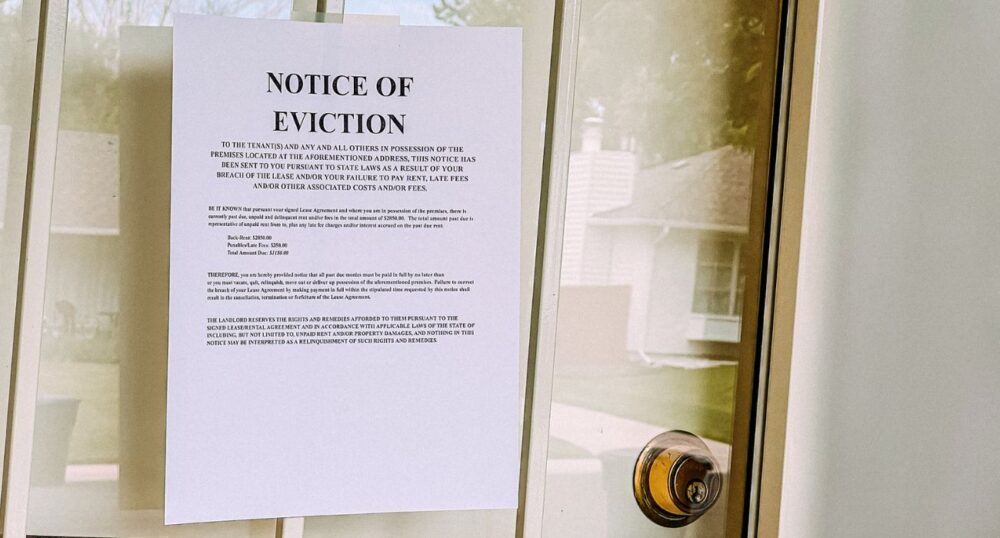Fort Worth is facing an increase in eviction filings, according to a new report presented by staff to the city council last week.
An informal report found that eviction fillings have increased significantly since 2020, as reported by NBC 5 DFW. The report looked at data from Princeton University’s Eviction Lab.
The report found that in 2023, there were 46,962 filings — more than in Dallas and Austin, both of which have larger populations than Fort Worth. The highest eviction numbers came out of Houston.
The City of Fort Worth has 442,278 renter households in Tarrant and Denton counties combined. A sharp increase in evictions took place from 2021 to 2022. In 2021, there were 21,673 eviction filings, while in 2022, there were nearly double the number of filings at 42,425.
The average rent in Fort Worth is $1,426 for an 857-square-foot apartment, according to RentCafe. In comparison, the average rent in Dallas is $1,559.
Eviction filing hotspots coincided with high concentrations of multifamily housing. The report also found that female and black renters had a disproportionate share of eviction filings.
The increase in the cost of living has been putting many under strain. In the Dallas-Fort Worth-Arlington area, the consumer price index for urban consumers over the past 12 months grew 5.3%, according to the U.S. Bureau of Labor Statistics. Area prices rose 0.9% in December alone.
“When you combine, increase[d] cost of food, transportation, housing, all those things together, people just cannot make it work anymore,” Lauren King, Tarrant County Homeless Coalition executive director, told NBC 5.
“Every week, we see between 600 and 1,100 households who are being evicted, or who are being filed on for eviction,” King added.
The DFW metro ranked second in the United States for cities with the most inflation last year, according to a study by WalletHub, as The Dallas Express reported.
The eviction report listed some programs that could help reduce evictions, including legal aid for tenants, fair housing centers, taxpayer-funded welfare programs, source-of-income discrimination laws, and eviction diversion programs.
It also highlighted policies for cutting down on evictions, such as just-cause eviction laws, a right-to-cure period, the right to counsel in evictions, increasing eviction fees, and increasing the supply of low-income housing, which, at least in Dallas, has been hampered by the city’s purportedly overburdensome regulations and permitting delays, as previously reported by The Dallas Express.
Additionally, transparency has been a key issue for some municipalities in Texas.
In February, Rep. Nate Schatzline (R-Fort Worth) announced the filing of HB 1829, which relates to the publication of annual financial statements by municipal governments. The goal was to bring more accountability and transparency to government spending, as previously reported by DX.
A poll conducted by DX in 2023 found that a majority (53%) of Dallas residents desire greater transparency from the City of Dallas.

